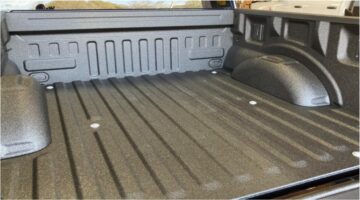Following on from its 2018 unveiling of three concept cars as its “vision of the mobility of the future”, Renault Group Thursday showcased its vision for shared mobility with three electric concept-cars at VivaTech.
To prepare this new era of sustainable mobility for all, Renault is working on four strategic areas of innovation that are key to transforming the industry: electric mobility, connected mobility, autonomous mobility and new mobility services.
The entire value chain, including vehicles, fleet management, mobility platforms and client applications needs to be expanded. Renault will be presenting it at VivaTech.
Officially inaugurated on 15 May 2019, Paris-Saclay Autonomous Lab is a project initiated by Renault, the Transdev Group, IRT SystemX, the VEDECOM Institute and the University of Paris-Saclay. Its purpose is to devise and test a comprehensive autonomous transportation system comprising autonomous vehicles, a supervision system, connected infrastructure and customer applications. Experiments will be conducted to determine the requirements for scaling up an autonomous mobility service.
As part of this project, Renault introduced its car-on-demand service using autonomous electric Renault ZOE Cab prototype vehicles. The service is designed to provide many pick-up and drop-off points, which do not interfere with other traffic and are located near (never much more than 300 meters from) the most frequented campus areas. If needed, the vehicle stops on the way to pick up another passenger travelling along all or part of the same route. People travelling to the campus by public transportation will be able to use the service to freely move around the site.
The second vehicle, Renault EZ-FLEX is an experimental compact, electric and connected vehicle designed for last-kilometer urban deliveries. A first trial will be carried out with Groupe LA POSTE to test the vehicle and its services. The trial will involve all ecosystem stakeholders and is designed to develop a common vision covering urban goods mobility.
The vehicle is equipped with sensors to track their use. This information will be combined with feedback from operators during the trial. A broad range of data will be collected: geolocation, mileage, autonomy, door opening, speed, stops, etc. The data will be transferred in real time or once a day via the vehicle’s connectivity in order to gain an overview of the vehicle’s actual use in day-to-day operation. The analysis of the data, together with feedback from operators such as LA POSTE, will enable Renault to design vehicles that are better suited to changing urban logistics practices.
The third concept is the Renault EZ-POD, an exploratory autonomous electric vehicle that can be used to provide first and last kilometer mobility.
The two-seat autonomous connected all-electric Renault EZ-POD has a distinctive small footprint and high agility to provide mobility within closed sites such as parking garages, hotels, shopping centers, campuses and in urban settings such as city centers, neighborhoods and apartment complexes. The Renault EZ-POD, which has adjustable speed, is designed for transportation over short distances and serves as complementary mobility for all.
The Renault EZ-POD, designed primarily as a robotized automated platform to provide first and last kilometer transportation of people, can also be provided in a goods delivery version.









